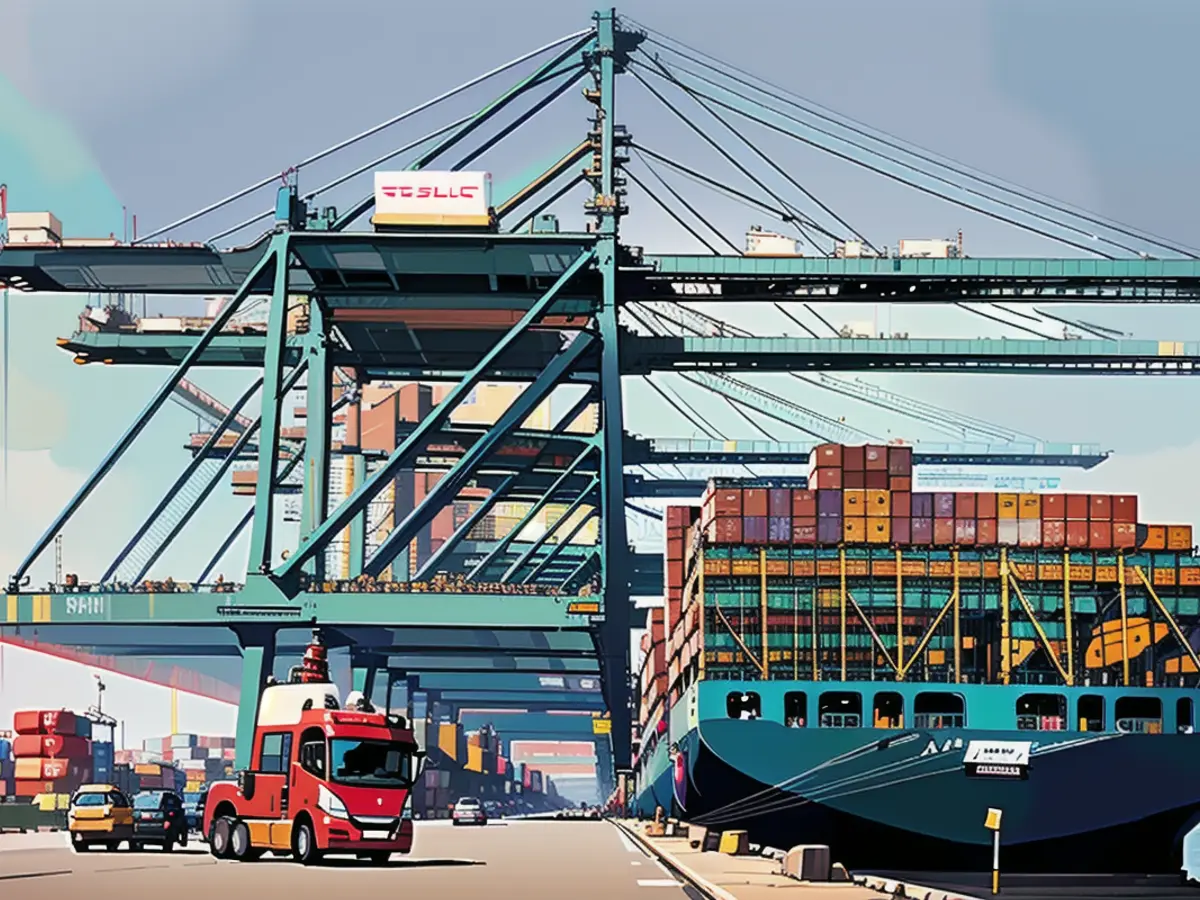Raising Tariffs for Electric Vehicles from China to 100% by Biden
Joe Biden is putting a stop to electric cars, solar cells, and chips being imported from China by significantly increasing import duties. Most notably, the duty on electric cars is going up from 25% to a whopping 100%.
Biden's administration is slapping a 100% tariff on electric cars from China, while also imposing new or increased tariffs on various other items like solar cells, semiconductors, port cranes, and medical products such as cannulas and protective masks. The motive behind these measures is the government's claim that China is flooding global markets with artificially cheap exports. These measures, however, are not intended to ruin the relationship with China completely.
Biden's economic advisor, Lael Brainard, told reporters that they're aiming for a stable relationship with China. She refused to comment on China's potential reactions. The US government declared that the new tariffs will affect imports worth $18 billion.
Chinese electric cars already had a 25% tariff in the US, which had kept them out of the market. The administration believes that Chinese manufacturers receive unfair subsidies and could disturb the market with inexpensive vehicles. China's electric car exports increased by 70% in 2023, and the US government fears this could put investments in other countries at risk.
Elon Musk, the CEO of Tesla, also expressed his concerns back in January, stating that "If there are no trade barriers, they will pretty much destroy most other car companies in the world."
Biden wants to prevent production from moving to other countries after witnessing this happen in his hometown of Scranton, Pennsylvania. He's determined to ensure fair competition. During his time as president, Biden has allocated tens of billions of dollars for investments in the chip industry, infrastructure, manufacturing, and more. His predecessor, Donald Trump, had already imposed tariffs on imports from China.
Here's what the other special tariffs on Chinese products entail:
Solar cells: The tariffs will increase from 25% to 50% this year, with China allegedly having the capability to double their global production capacities in the short term. The US worries about a potential shortage in supply due to unfair practices.
Port cranes: The giant machines that load and unload ships will now face a 25% duty. Biden's administration plans to ramp up domestic production of port cranes.
Medical products: A 50% duty will be enacted on syringes and needles. Duties on certain types of protective masks will rise from the previous maximum of 7.5% to 25%. However, the increase for medical gloves has been postponed until 2026.
Semiconductors: Tariffs on these components will climb from 25% to 50% by 2025. While the US doesn't receive the latest chips from China, it does import semiconductor technology from older processes utilized in cars and household appliances. Biden is currently investing $39 billion into subsidizing new chip factories in the US. This is seen as a matter of national security.
Steel and aluminum: Tariffs on certain metal products will jump from 7.6% to 25%. Brainard pointed out that the Chinese steel industry uses production processes with higher CO2 emissions, and American manufacturers are investing in more eco-friendly technologies.
Batteries: Tariffs on lithium-ion batteries for electric cars will rise from 7.5% to 25% this year. For other lithium-ion batteries, the increase will be delayed until 2026. There are also 25% tariffs on some electronic components such as magnets.
China expresses discontent over the aggressive economic actions of the US. Chinese Foreign Ministry spokesman Lin Jian emphasized that the tariffs Biden imposed under his predecessor violated WTO rules. Beijing will take appropriate steps to safeguard its interests.
China also denies that its economy is causing global overcapacity. "The so-called problem of Chinese overcapacity does not exist, neither from the perspective of comparative advantage nor in terms of global demand," stated Xi Jinping, China's head of state and party leader, during his recent visit to Europe. Instead, China argues that its green energy industry has been instrumental in reducing global inflationary pressure and contributing to the fight against climate change. US ministers had already voiced grievances about China's economic practices on previous trips to the country.
Source
Image
Link
Link
Highlight
Read also:
- Lack of snow also opens up new opportunities for winter tourism
- Abrupt end to e-car subsidies
- The chemical industry has little confidence
- Intersport boss hopes for sales boom through sporting events
- The Steel and aluminum industries in the USA are anticipating an increase in tariffs from 7.6% to 25%, as the Biden administration believes that Chinese manufacturers receive unfair subsidies and their production processes have higher CO2 emissions.
- The USA is not only imposing punitive tariffs on electric cars and solar cells from China but also on other products such as semiconductors, battery cells, and medical equipment, citing China's alleged flooding of global markets with artificially cheap exports.
- The Solar industry in the USA is concerned about the potential shortage in supply due to the increased tariffs from 25% to 50% on solar cells as China is capable of doubling its global production capacities in the short term.
- The Semiconductor industry in the USA is investing heavily to counter the impact of increased tariffs on semiconductors from China, which will climb from 25% to 50% by 2025, and it is seen as a matter of national security.
Source: www.ntv.de








